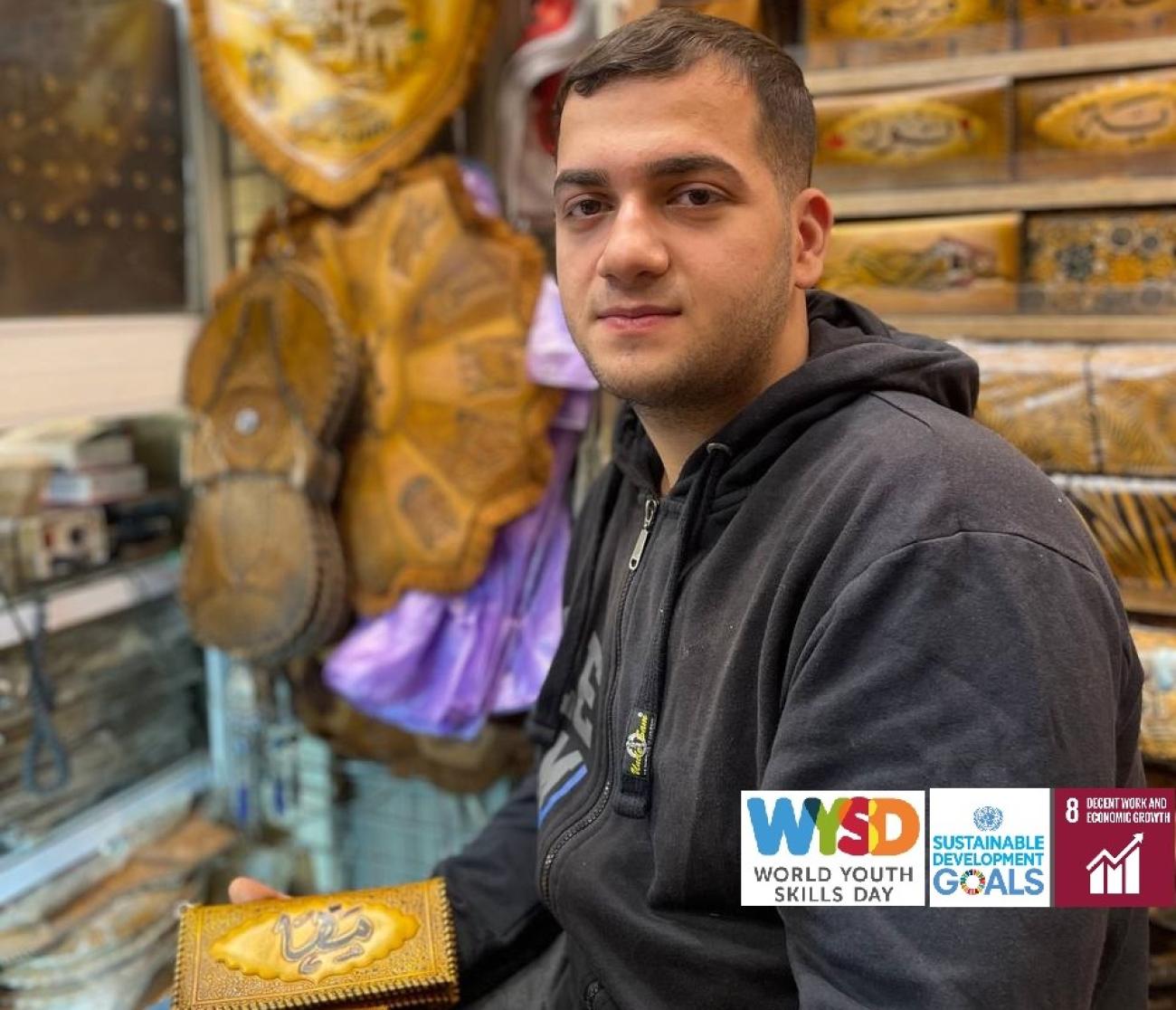By Sana’a Kareem, Public Information Officer, UNAMI
In his small corner shop in Baghdad, surrounded by an assortment of leather goods and accessories, Mohammed Baqer sits on a stool, bending over and carefully working on a leather purse with a sharp electrical tool.
When asked what he was doing, he raised his head, the same frowned look on his face, and responded confidently: “I’m engraving initials on a purse”. Then went back to focus on his delicate work.
Asked to engrave the letter 'S' in English on a purse, he snapped back: "I only do Arabic calligraphy."
A youthful 22-year-old from Baghdad's Karradah neighbourhood, Mohammed has been working on leather for many years, a profession known as Sarajeh. The word Sarajeh comes from Sarj - a mount's saddle.
Mohammed says that this profession is dying, but for him the work is rewarding and sometimes 10 hours a day to keep up the business he took on after his father and grandfather. "We are trying to keep our heritage alive as much as we can," he added. As he spoke, shoppers stopped for a look at the display of his work adorning the front of his shop in the busy Souk al-Saray on al-Mutanabbi Street in Baghdad’s historic centre.
Mohammed went on to describe his work: “The Saraj-man works on leather to engrave letters on different type of items such as wallets, handbags, frescoes, leather covers for the Holy Qu’ran, and many other leather crafts.”
Many of his engravings speak of the rich history of Iraq and this shines through on the simplest of leather wallets that he has proudly placed on the shelves of his shop from proverbs to Arabic and Islamic writings.
Goals supporting in this web story:
SDG 8: Decent work and economic growth
